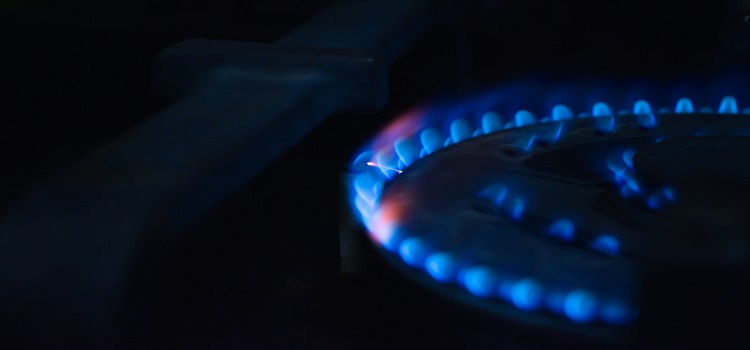As an Amazon Associate I earn from qualifying purchases.
Left Gas On Stove: Risks, Safety Measures, and What to Do
Introduction: Leaving the gas on the stove inadvertently is a common but potentially hazardous mistake. Whether due to distraction or forgetfulness, the consequences of leaving the gas on can range from gas leaks to fire hazards. In this guide, we’ll explore the risks associated with leaving gas on the stove, safety measures to prevent accidents, and steps to take if you find yourself in this situation.

Uses of Gas Stoves: Gas stoves are indispensable cooking appliances in many kitchens, offering precise temperature control and rapid heat distribution. They provide versatility for various cooking techniques, from simmering and sautéing to boiling and frying, making them a preferred choice for home cooks and professional chefs alike.
Benefits of Gas Stoves:
- Instant Heat: Gas stoves provide instant heat, allowing for quick preheating and responsive temperature adjustments during cooking.
- Even Heating: The flame of a gas burner provides uniform heat distribution across the bottom of cookware, minimizing hot spots and ensuring consistent cooking results.
- Controlled Cooking: Gas stoves offer precise control over heat intensity, making it easier to achieve desired cooking temperatures and textures for different recipes.
- Reliable Performance: Gas stoves continue to operate during power outages, ensuring uninterrupted cooking capabilities even when electricity is unavailable.
Risks of Leaving Gas On Stove:
- Gas Leaks: Leaving the gas on without ignition can lead to gas leaks, posing risks of gas buildup, inhalation hazards, and potential explosions.
- Fire Hazards: Accumulated gas in the vicinity of an open flame or spark can ignite, resulting in fires that can cause property damage and personal injury.
- Carbon Monoxide Poisoning: Incomplete combustion of gas produces carbon monoxide, a colorless, odorless gas that can be fatal if inhaled in high concentrations.
How to Prevent Accidents:
- Stay Alert: Pay attention to the stove while cooking and avoid distractions to minimize the risk of forgetting to turn off the gas.
- Use Timer: Set a timer as a reminder when cooking tasks require extended periods, such as simmering or slow cooking.
- Install Gas Detectors: Install carbon monoxide detectors and gas leak alarms in the kitchen and adjacent areas to alert you to any potential hazards.
- Develop Habits: Develop habits such as double-checking the stove before leaving the kitchen or before going to bed to ensure it is turned off.
FAQs (Frequently Asked Questions):
- What should I do if I accidentally leave the gas on the stove?
- If you discover that you’ve left the gas on the stove, immediately turn off the burner, ventilate the area, and check for gas odors or signs of a leak. Avoid creating sparks or flames and evacuate the premises if necessary.
- Is it safe to relight the stove after gas has been left on?
- If you suspect a gas leak or detect the smell of gas, do not attempt to relight the stove. Instead, ventilate the area, evacuate if necessary, and contact your gas provider or emergency services for assistance.
- What are the signs of a gas leak?
- Signs of a gas leak may include a rotten egg odor (added to natural gas), hissing sounds near gas appliances, dead vegetation near gas lines, or physical symptoms such as headaches, dizziness, or nausea.
- How can I check for a gas leak?
- To check for a gas leak, mix a solution of water and dish soap and apply it to gas connections, valves, or pipes. If bubbles form, it indicates a leak. Alternatively, use a gas detector or seek professional assistance.
- Can leaving the gas on the stove overnight be dangerous?
- Leaving the gas on the stove overnight poses significant risks of gas leaks, fire hazards, and carbon monoxide buildup, which can be dangerous or even fatal. It is essential to turn off the stove before going to bed.
- Should I turn off the gas supply if I leave my home for an extended period?
- It is advisable to turn off the gas supply at the main valve if leaving your home for an extended period to minimize the risk of gas leaks or accidents in your absence.
- Can pets accidentally turn on the gas stove?
- Pets may inadvertently turn on gas stoves by bumping into control knobs or pressing buttons. Install safety covers or locks on stove controls to prevent accidental activation.
- How often should I have my gas stove inspected?
- Schedule annual inspections by a qualified technician to check for gas leaks, ensure proper burner operation, and inspect gas lines, connections, and ventilation systems.
- Are there any safety features that automatically shut off the gas stove?
- Some modern gas stoves may be equipped with safety features such as flame sensors or automatic shut-off valves that activate if the flame extinguishes unexpectedly.
- Is it safe to use a gas stove during a power outage?
- Gas stoves can be used during power outages as long as the gas supply remains uninterrupted. However, exercise caution and avoid leaving the stove unattended to prevent accidents.
Conclusion: Leaving the gas on the stove poses significant risks of gas leaks, fire hazards, and carbon monoxide poisoning. By understanding the potential consequences, implementing preventive measures, and knowing how to respond in case of accidents, you can ensure the safe operation of your gas stove and protect yourself and your loved ones from potential dangers. Stay vigilant, prioritize safety, and seek professional assistance if needed to maintain a safe cooking environment in your home.
As an Amazon Associate I earn from qualifying purchases.
Leave a Reply